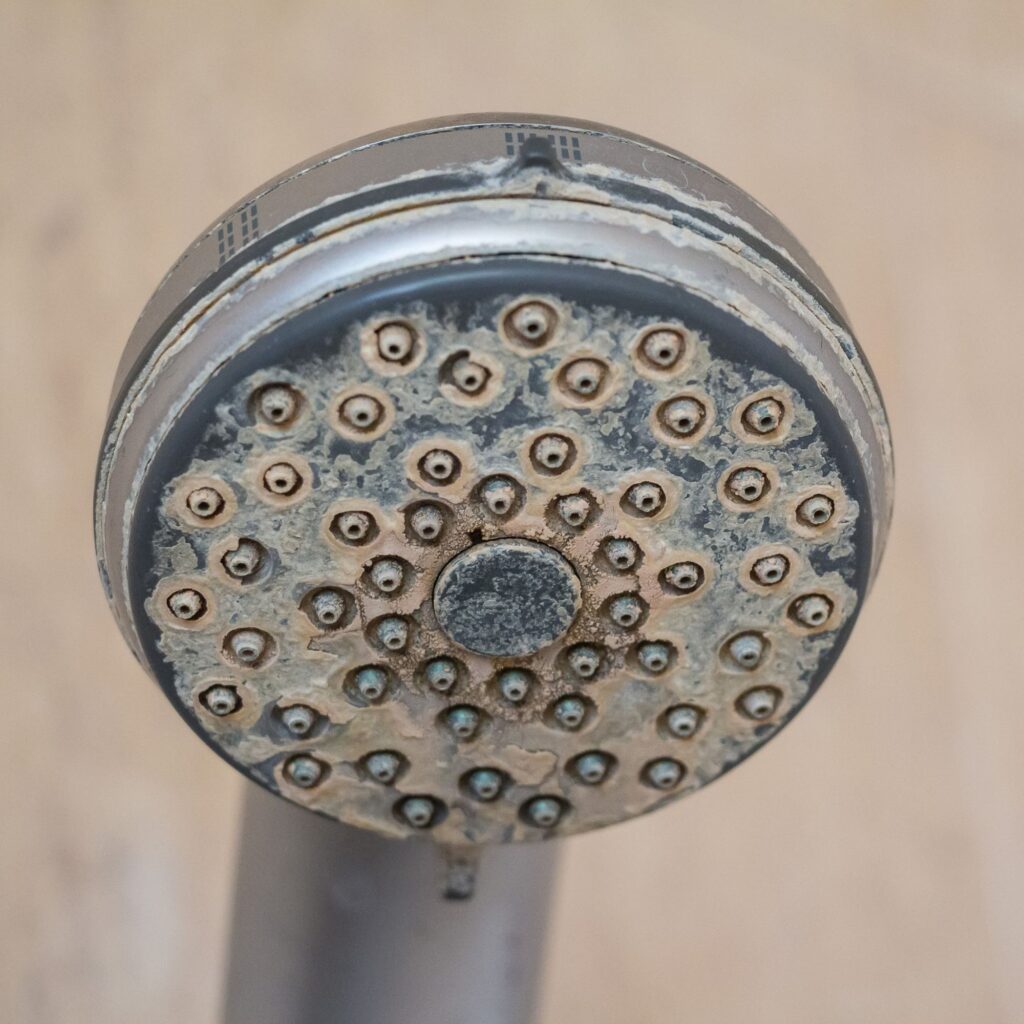What is hard water?
Water is considered to be “hard” when it has a fair amount of calcium and magnesium mixed into it. While trace amounts of these minerals are essential for human health, they cause limescale buildup, soap scum, and reduced appliance efficiency. Fortunately, there are several solutions available to address hard water problems and maintain cleaner, healthier plumbing. Here are some hard water solutions you can implement today.
Hard Water Solutions in Dallas, TX
Water Softeners
Water softeners are one of the most commonly used systems for treating hard water. These systems use ion exchange technology to remove minerals like calcium and magnesium, which cause water hardness, and replace them with sodium ions. This process results in softer water that is gentler on plumbing fixtures, appliances, and skin.
Water softeners are generally installed at the point of entry, treating water for the entire household. They need periodic maintenance, including replenishing salt in the brine tank and occasional cleaning the resin bed.
Electronic Water Descalers
Electronic water descalers, also known as electronic water conditioners or water descaling systems, offer an alternative to traditional water softeners. These devices use electromagnetic fields to alter the physical properties of minerals in hard water, preventing them from forming scale buildup.
Electronic water descalers are usually installed on the incoming water supply line and require very little maintenance compared to water softeners. However, their effectiveness may vary depending on water hardness levels and specific water conditions.
Chemical Water Treatments
Chemical water treatments, such as polyphosphate or sequestering agents, can help prevent scale formation by binding to minerals in hard water and preventing them from precipitating out. These treatments are typically injected into the water supply through a chemical feeder or applied directly to plumbing fixtures.
Chemical water treatments are relatively easy to apply and require less maintenance than traditional water softeners. However, they may not provide the same level of water softening as other methods. And you’re adding chemicals to your water. Yuck.
Magnetic Water Conditioners
Magnetic water conditioners use magnetic fields to alter the molecular structure of minerals in hard water. This inhibits them from adhering to surfaces and forming scale buildup. These devices are typically installed on the exterior of pipes or water lines.
Although magnetic water conditioners are relatively low-cost and easy to install, their effectiveness in treating hard water is debatable, with limited scientific evidence to support their efficacy.
Reverse Osmosis Systems
Reverse osmosis (RO) systems can effectively remove minerals and other impurities from water, producing high-quality, softened water for drinking and cooking. These systems use a semipermeable membrane to filter out contaminants, including hardness minerals.
While RO systems are highly effective at producing softened water, they are usually installed as point-of-use systems for drinking water and may not address hard water issues throughout the entire household.

Call Your Local Plumber in Dallas, TX
If you’re having issues with hard water in Dallas, TX, give your local plumbers a call. We have decades of experience assisting with a range of plumbing needs. Connect with us online, or give us a call at (214) 402-5454.
By implementing these solutions for dealing with hard water, homeowners can enjoy cleaner, healthier plumbing systems, improved appliance efficiency, and reduced maintenance costs in the long run.

